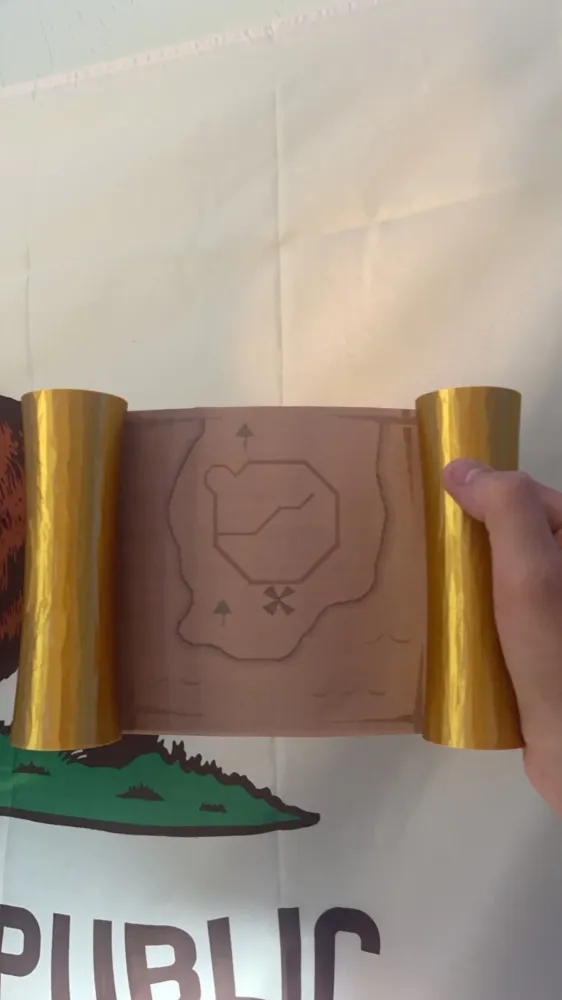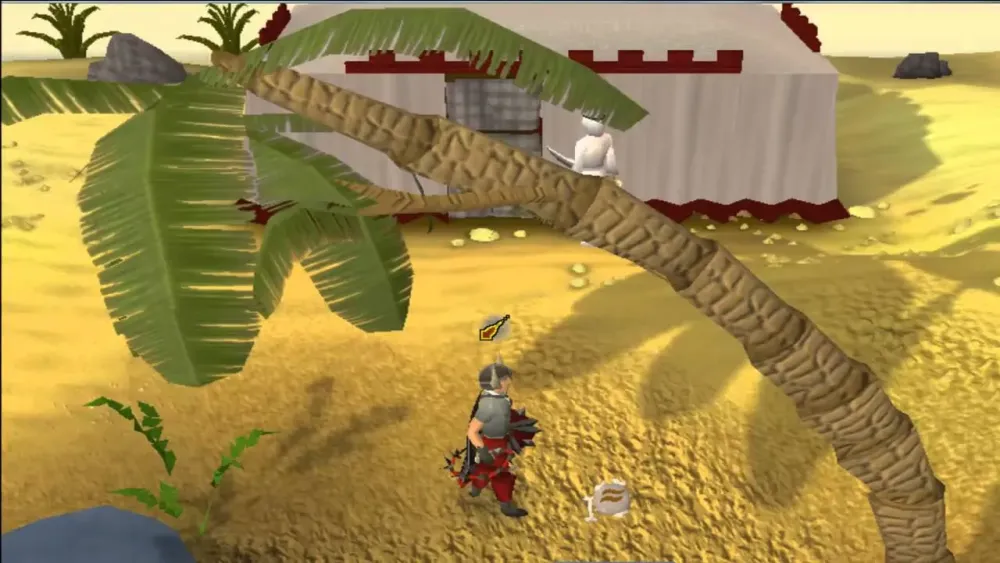Your cart is empty
What Happens When You Die with a Clue Scroll in Old School RuneScape

In Old School RuneScape (OSRS), clue scrolls are a thrilling part of the Treasure Trails activity, guiding players on treasure hunts across Gielinor for potentially lucrative rewards. However, dying while holding a clue scroll can lead to confusion, especially for new players. This comprehensive guide explains what happens when you die with a clue scroll, covering mechanics, risks, and strategies to protect your progress. Whether you’re tackling a beginner or master clue, understanding these mechanics is key to avoiding frustration.
Clue scrolls come in six tiers—beginner, easy, medium, hard, elite, and master—each offering unique challenges and rewards. When you die in OSRS, the game’s death mechanics determine what happens to your inventory, including clue scrolls. These mechanics vary based on location (e.g., Wilderness vs. non-Wilderness), the type of death (PvP or PvE), and whether you have protective items like a clue box.
Basic Death Mechanics in OSRS
When you die, you typically keep your three most valuable items (or four with the Protect Item prayer active), based on their Grand Exchange value. Items not kept are either dropped on the ground, sent to Death’s Office, or lost entirely, depending on the circumstances. Clue scrolls, valued at 1 gp, are low-priority for retention unless protected by specific mechanics.
Clue Scroll Tiers and Their Risks
Each clue scroll tier has different drop sources and completion requirements, affecting the risk of losing them. For example, beginner clues are accessible to free-to-play players and often dropped by low-level monsters, while master clues require high-level skills and quests. The higher the tier, the more devastating a loss can be due to the time and effort invested.
What Happens When You Die with a Clue Scroll

The outcome of dying with a clue scroll depends on where you die and how you die. Below, we break down the scenarios.
Death Outside the Wilderness
If you die outside the Wilderness (e.g., to a monster or in a safe PvP area like the Duel Arena), your clue scroll is generally safe. It will either remain in your inventory or be sent to Death’s Office, where you can reclaim it for a fee. This applies to both PvE and PvP deaths in non-Wilderness areas.
Death in the Wilderness (Level 20 or Lower)
In the Wilderness at level 20 or below, the rules are slightly different:
- PvE Death: If killed by a monster, you keep your clue scroll, even if it’s not one of your protected items.
- PvP Death: An unprotected clue scroll stays on the ground for up to 1 hour, allowing you to retrieve it. If you have a clue box, the box is destroyed, but the clue scroll is protected and remains in your inventory.
Death in the Wilderness (Above Level 20)
Above level 20 in the Wilderness, the stakes are higher. If you die—whether to a player or a monster—your clue scroll will disappear unless it’s protected by one of the following:
- Clue Box: Purchased for 100,000 points at the Bounty Hunter Store, the clue box is destroyed upon death, but it saves your clue scroll or reward casket.
- Protect Item Prayer: If active and the clue scroll is among your top four items, it may be kept, though this is unlikely due to its low value.
- Item Kept on Death: If the clue scroll is one of your three (or four) most valuable items, it’s retained, but this is rare given its 1 gp value.
Without these protections, the clue scroll is lost, and any progress on the Treasure Trail is reset. This makes Wilderness clue steps particularly risky, especially for hard, elite, and master clues that often involve coordinate clues in dangerous areas.
Protecting Your Clue Scroll
Losing a clue scroll can be frustrating, especially after completing several steps. Here are strategies to safeguard your progress.
Using a Clue Box
The clue box is the most reliable way to protect a clue scroll in the Wilderness. It ensures that even if you die above level 20, your clue scroll or reward casket is preserved. However, you must have the clue box in your inventory at the time of death, and it will be consumed upon use.
Minimizing Risk in the Wilderness
To reduce the chance of losing a clue scroll, follow these tips:
- Travel Light: Bring only essentials (e.g., a spade, the clue scroll, and a teleport item like a Royal Seed Pod). Avoid carrying valuable gear that makes you a target for PKers.
- Use F2P Worlds: For Wilderness steps, travel to the location in a free-to-play world, then hop to a members’ world to dig or complete the step. This minimizes exposure to PKers.
- Enable Player Attack Alerts: Use plugins like Runelite’s Wilderness Player Alert to spot potential threats early.
- Protect Item Prayer: Activate this prayer if carrying minimal items, increasing the chance of keeping your clue scroll.
Banking Reward Caskets
If you complete a clue and receive a reward casket, don’t open it in the Wilderness. The clue box protects unopened caskets, but opened rewards are subject to standard death mechanics. Bank the casket until you’re in a safe area.
Clue Scroll Drop Rates and Recovery
If you lose a clue scroll, you’ll need to obtain a new one. Understanding drop rates can help you plan your recovery strategy.
Clue Scroll Sources
Clue scrolls are random drops from monsters, minigames, or skilling activities. Here’s a table of reliable sources for each tier:
| Clue Tier | Common Sources | Drop Rate |
|---|---|---|
| Beginner | Goblins, Fishing (clue bottle), Mining (clue geode) | 1/128 (Goblins) |
| Easy | H.A.M. Members, Thugs (Edgeville Dungeon) | 1/50 (H.A.M.), 1/64 (Thugs) |
| Medium | Guards (Falador), Pyrefiends | 1/128 (Guards), ~1/100 (Pyrefiends) |
| Hard | Hellhounds, High-level Slayer monsters | 1/64 (Hellhounds), ~1/100 (Slayer) |
| Elite | Barrows, Bosses (e.g., Kree’arra) | ~1/200 (Barrows) |
| Master | Skilling, Bosses, or Watson (trade-in) | 1/50 (from Easy clue reward) |
Note: Drop rates vary by activity and monster. Using a Ring of Wealth (i) can double drop rates for some monsters, like Hellhounds in the Wilderness.
Using the Drop Trick
The “drop trick” allows you to collect multiple clue scrolls without completing them. Drop a clue scroll on the ground (it despawns after 61 minutes), then continue killing monsters or skilling to obtain more. Use Runelite’s Ground Items plugin to track timers. This is useful for stockpiling clues, reducing the impact of losing one.
Tips for Completing Clue Scrolls Safely
Beyond protecting your clue scroll, completing Treasure Trails efficiently and safely requires preparation.
Preparation and Tools
Equip yourself with the right tools and knowledge:
- Runelite Plugins: Use the Clue Scroll plugin for step-by-step guidance and the Ground Items plugin for drop trick management.
- Teleportation Items: Carry items like the Explorer’s Ring, Royal Seed Pod, or Teleport Crystal for quick escapes. These are often kept on death, making them ideal for Wilderness steps.
- Quest Progress: Complete quests like “Dragon Slayer II” or “Song of the Elves” to access areas required for higher-tier clues.
Handling Wilderness Steps
Wilderness steps, common in hard, elite, and master clues, are the riskiest. Here’s how to approach them:
- Scout First: Check for PKers before digging or fighting wizards (e.g., Zamorak or Saradomin wizards).
- Low-Risk Gear: Wear cheap armor (e.g., monk robes) and carry only a spade, clue scroll, and teleport.
- Time Your Trips: Play during off-peak hours to reduce the chance of encountering PKers.
Reward Management
After completing a clue, prioritize safety:
- Bank Immediately: Deposit reward caskets in a bank before opening to avoid losing loot in dangerous areas.
- Avoid Entrana for Opening: Opening caskets on Entrana removes armor and weapon rewards, which may be undesirable for ironmen seeking specific items like Flared Trousers.
By understanding what happens when you die with a clue scroll in OSRS and using protective strategies, you can tackle Treasure Trails with confidence. Whether you’re chasing ranger boots or a 3rd Age pickaxe, these tips will help you minimize losses and maximize rewards. Happy hunting!

